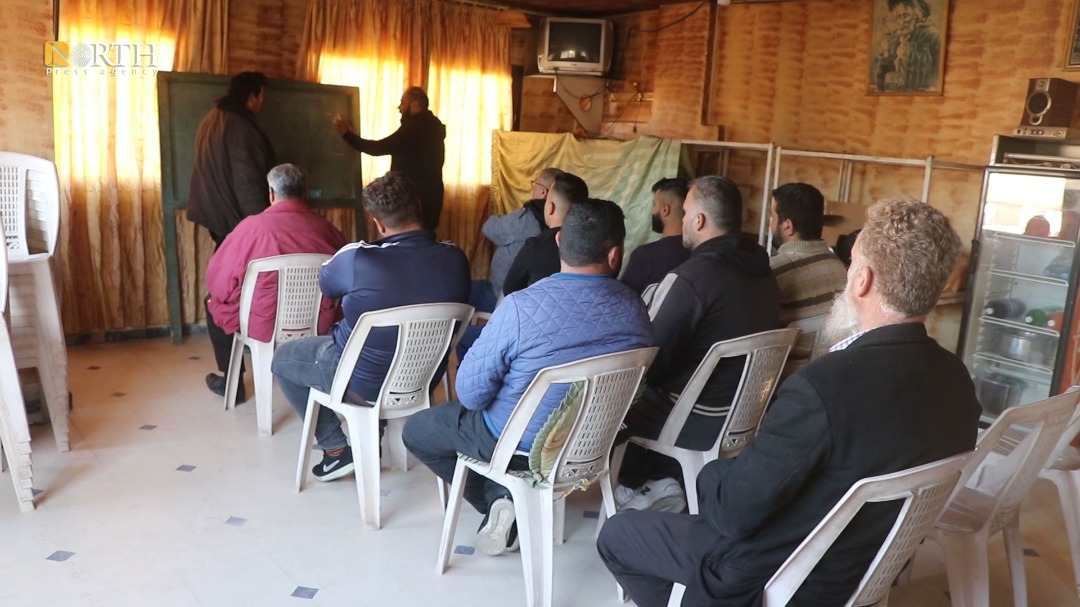TEL TAMR, Syria (North Press) – Two months ago, two teachers in the Assyrian neighborhood in the town of Tel Tamr, north of Hasakah, initiated a program to carry out literacy workshops for local Assyrian residents at their request.
The learners said that their number has reached 15, and they will learn the Arabic language first, then the Assyrian language and finally the Kurdish language.
Daily need
The students receive three hour-long courses a week, according to supervisors.
61-year-old Idmon Iliya is trying to learn in order to manage his official identity documents and daily tasks on his own.
Under the Syrian government, the Hasakah countryside remained underdeveloped in terms of education, with the Syrian Ministry of Education referring to the region as a “remote area.”
The Ministry of Education prohibited the teaching of Assyrian and Kurdish language in all schools, including the schools of Tel Tamr and its countryside.
“We came here to learn; it is a positive thing to learn our mother tongue and Arabic at this age,” Iliya said.
Iliya, from Kifji village outside of Tel Tamr, added that he has come a long way in learning the Arabic alphabet, and he can now understand a lot of written text.
He attributes his illiteracy to his neglect of his education, despite his parents’ attempts to convince him to go to school with his friends.
“Earlier, I did not have the desire to learn; now I regret that and need to know what is written in books or in any paper,” he pointed out.
Iliya travels ten kilometers to attend lessons in the town, “with the aim of challenging the illiteracy that has accompanied me throughout my life.”
We regret the past
Through the years of the Syrian crisis, Tel Tamr was subjected to multiple attacks due to the security vacuum caused by Syrian government’s withdrawal from it, starting with attacks by al-Nusra Front (now Hayat Tahrir al-Sham), ISIS, and finally the Turkish attacks which reached the outskirts of the town in 2019.
The Turkish attacks on the Khabur River area caused the displacement of nearly 90% of Assyrian residents.
Economic conditions and the nature of rural life in Syria’s Jazira region, in addition to poor services, roads, and transportation infrastructure, caused many children to go without an education.
55-year-old Tel Tamr resident Abdalahad Noya, Tel Tamr resident, said worked instead of going to school in his childhood. He has attended literacy classes for about a month and a half, with the goal of learning to read to run his business and manage his daily affairs.
Learning difficulties
Although adult learners are eager to complete their education after foregoing it in the past, they face difficulty in learning and the elderly can sometimes require more time.
“We face difficulties in understanding and memorizing, as the elderly person is not like the child in achieving satisfactory results,” he explained.
Those in charge of literacy programs said that some elderly people were embarrassed to return to study, which sometimes proved to be an obstacle in reaching them.
Volunteer teacher Robert Isho said that their goal is to raise awareness and help the learners to manage their matters in any field.
“Things look good as more learners join every week,” Isho added.
He added that they face difficulties in teaching, as some learners have not studied at all.
He believes that it is not too late to start, “as we are in a time that requires us to be aware of what is going on around us.”

